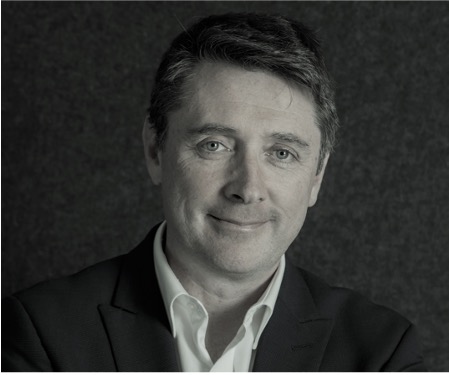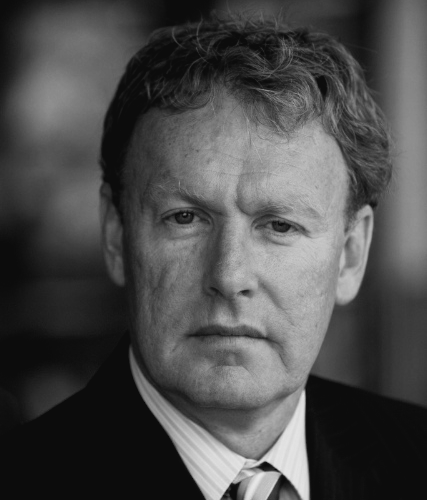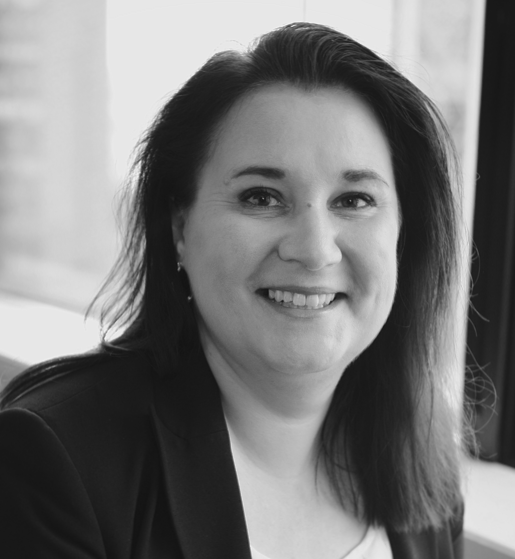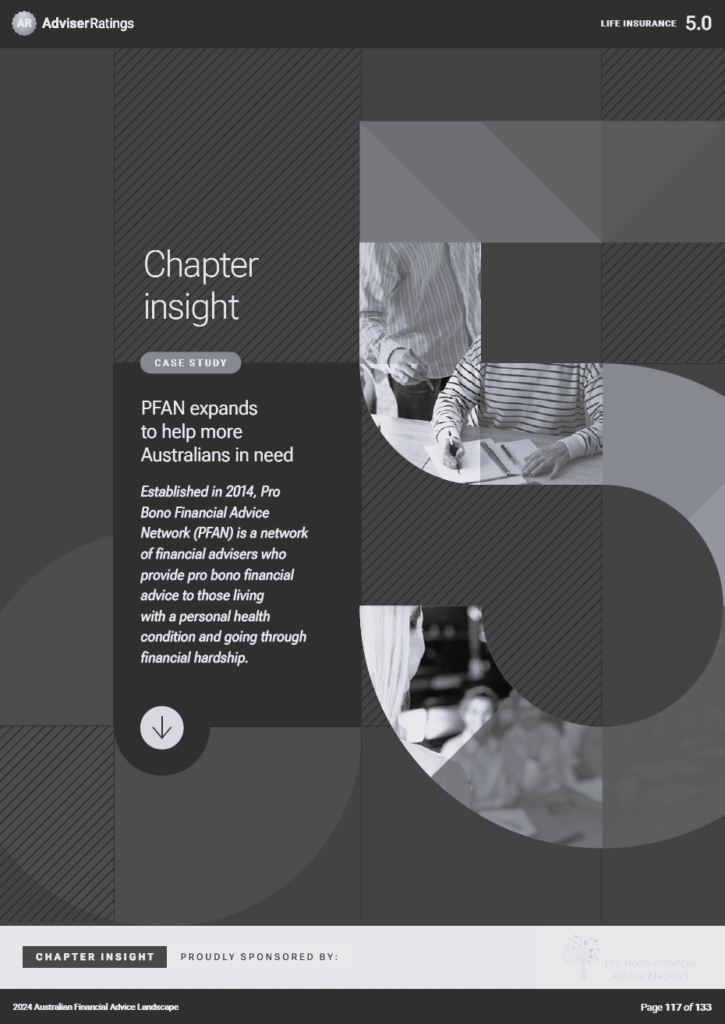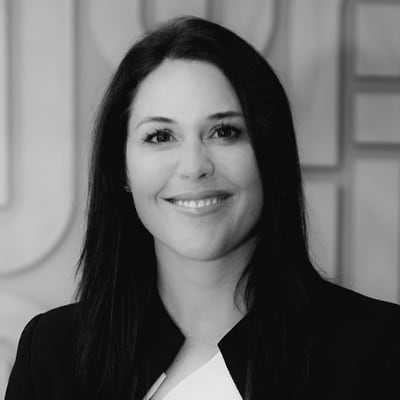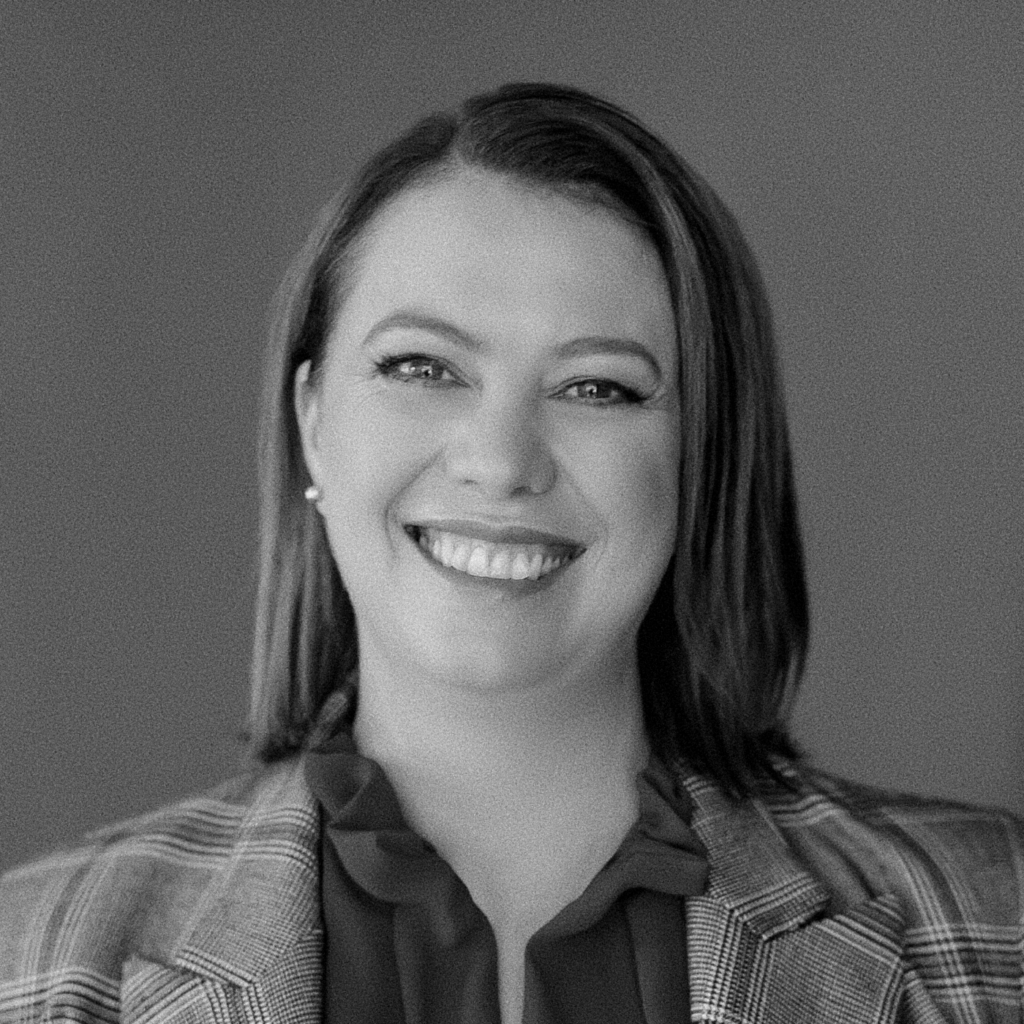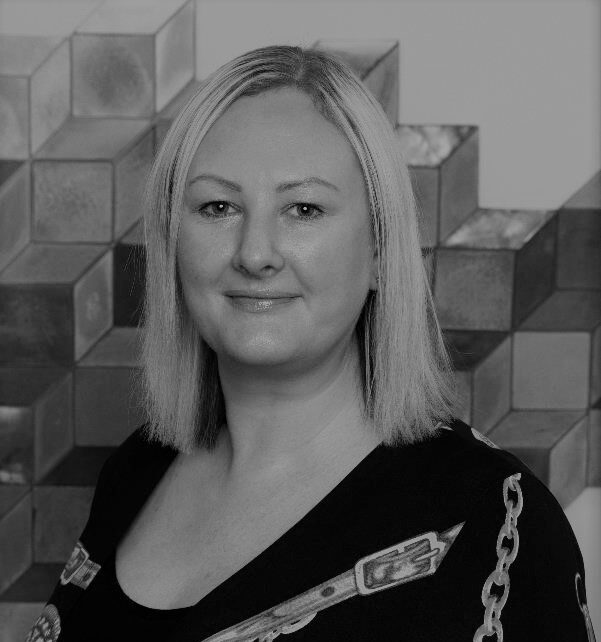Sydney, 24 April: The Pro Bono Financial Advice Network (PFAN) is pleased to announce new partnerships with Pancare and MND Victoria, creating more opportunities for people living with a serious illness or disability to access pro bono advice.
Established in 2014, PFAN is a network of financial advisers who provide pro bono financial advice to those in need. Since inception, PFAN has been working with the Multiple Sclerosis network throughout Australia, connecting individuals through referral partners to locally based advisers. Now, through new partnerships with Pancare and MND Victoria, PFAN will also support people affected by pancreatic and Upper GI cancers, and those diagonosed with motor neurone disease.
Advisers registered with PFAN are given the opportunity to take on one pro bono client per year.
PFAN Chair Nicola Beswick said the opportunity to connect more individuals living with a personal health crisis with local based advisers is central to the organisation’s mission.
“Helping to improve the financial wellbeing of Australians living with a serious illness or disability is the reason behind PFAN’s inception. So being able to extend the network of charities we work with means we can help more people in need with access to financial advice.
“We can only achieve this milestone due to the generosity financial advisers throughout Australia have provided to PFAN, and the ongoing support from our corporate sponsors HUB24, Innova, Milford and supporters TAL, Zurich Assure, Intraprac, FAAA, SMSF Association, Professional Planner, Adviser Ratings.
“As an adviser myself, I know first-hand the value of advice in helping to reduce financial worries and stress and create a clear pathway forward for clients in terms of feeling confident about being able to plan for and achieve a comfortable retirement. Having access to advice is nothing short of life-changing, especially for people who are experiencing financial hardship because of a personal health crisis.
Head of Pansupport programs David Menzies says support from organisations like PFAN for patients are incredibly invaluable, especially where out of pocket costs can, at times, be out of reach for a lot of people.
“Evidence suggests that over five percent of patients and carers in our recent survey reported out of pocket costs in excess of ten thousand dollars, which causes stress on household budgets in the current cost of living crisis.[1]
“Being able to link our patients into the PFAN network helps alleviate the stress of trying to manage their personal finances, whilst dealing with a cancer diagnosis and undergoing treatment.”
MND General Manager Support Services Jo Whitehouse says an MND diagnosis is life changing and as such, seeking financial advice early on can be crucial.
“We’re delighted to partner with PFAN as they provide pro-bono financial advice through their network of financial advisers, which aligns with our mission of providing and promoting the best possible care and support to people living with MND.”
Many of the advisers who join the PFAN network and become part of its community offer their financial planning expertise because they want to make a real difference to people’s lives.
My Wealth Strategy Senior Financial Planner Bruno Dimasi said: “Having seen first-hand the impact these conditions have on the lives they effect, and the remarkable work the associated charities do for them, I wanted to give back and help out as best I could which is in the area of financial planning.”
Find Wealth Founder and MD Warren Strybosch said: As a founder of a not-for-profit myself, I am keen to make a difference in my local community where possible. So, it was an easy decision to join the PFAN community to offer my financial planning services to those who are in need.”
PFAN Chair Nicola Beswick said: “Through PFAN, it is our hope to inspire the next generation of advisers and increase awareness of the value that we bring to others through our profession. So, I encourage any adviser who is interested in giving back to consider joining.”
For more information about PFAN please visit : https://www.probonoadvice.com.au/ or join the PFAN community on LinkedIn at Pro Bono Financial Advice Network (PFAN): Overview | LinkedIn
– Ends –
For media enquiries contact:
Natalie Pennisi
npennisi@hub24.com.au
P: 03 9275 7835
Nicola Beswick
P. 0450 227 877
Email nicola@nicolabeswick.com
About PFAN
The Pro Bono Financial Advice Network (PFAN) was established in 2014 by a group of concerned industry stakeholders including licensees, product manufacturers and professional bodies and is a not-for-profit organisation. PFAN puts individuals in contact with licensed financial advisers that have offered to provide pro bono advice in line with best practice.
PFAN’s mission is to improve the financial wellbeing of Australian’s living with serious illness and/or disability, through providing pro bono financial advice, and to inspire others to do the same.
PFAN is for individuals who have been referred by PFAN partners and are experiencing significant financial hardship as a result of a personal health crisis and require financial advice assistance.
About Pancare and MND Victoria
Leading charity Pancare is committed to inspiring hope, raising awareness, supporting families and funding research for upper gastrointestinal cancers.
MND Victoria provides and promotes the best possible care and support for people living with MND.
[1] State of the Nation: Upper Gastrointestinal cancers in Australia
